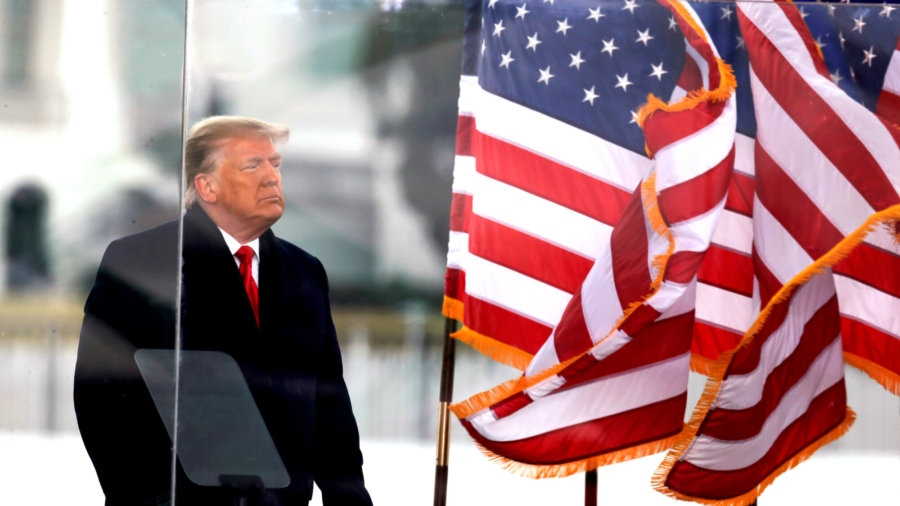Former President Donald Trump’s attorney on Monday argued in court that Trump cannot be sued for statements he made prior to the Jan. 6 breach of the U.S. Capitol building as they were protected speech and he was acting within the scope of his official presidential duties.
Trump’s lawyer, Jesse Binnall, said during a five-hour court hearing in Washington before U.S. District Judge Amit Mehta that Trump was “immune,” or shielded, from three lawsuits by Democratic members of Congress and two police officers.
“Executive immunity must be broad,” Binnall said.
Democratic lawmakers, including Reps. Eric Swalwell (D-Calif.) and Jerry Nadler (D-N.Y.), and two U.S. Capitol Police officers filed civil lawsuits against Trump and others, including Donald Trump Jr. and Trump lawyer Rudy Giuliani, arguing liability for injuries to police and lawmakers on Jan. 6.
Binnall, however, argued that Trump was acting within his official rights and is not responsible for any violence that ensued during the events that unfolded on Jan. 6.
The breach took place during a joint session of Congress when lawmakers met to certify electoral votes submitted by the states. The Capitol grounds and building were breached by protesters and some rioters, some of whom wanted to voice their stance against then-Vice President Mike Pence’s refusal to intervene in the certification process. Thousands of peaceful protesters remained outside.
“There has never been an example of someone successfully being able to sue a president for something that happened during his term of office,” said Binnall. “That absolute immunity of the presidency is very important.”
Joseph Sellers, one of the attorneys representing Swalwell’s suit argued that Trump’s statements were “a purely private act.”
“What he spoke about was a campaign issue, seeking to secure an election,” said Sellers, arguing that the former president’s remarks were an overt and unambiguous call for political violence.
“It’s hard to conceive of a scenario other than the president traveling down to the Capitol himself and busting through the doors … but of course he did that through third-party agents, through the crowd,” Sellers said.
Binnall, meanwhile, asserted Trump’s authority “to speak on whether or not any of the other branches, frankly, can or should take action,” citing the case of former President Barack Obama commenting publicly on rulings by the Supreme Court.
Judge Mehta, an Obama appointee, meanwhile challenged Trump’s claims of “absolute immunity” during the lengthy hearing.
“Is there anything the president could say while president of the United States that could subject him to civil suits?” Mehta asked Binnall.
Mehta also asked Binnall what he should do “about the fact the president didn’t denounce the conduct immediately,” asking whether “from a plausibility standpoint,” it indicated that Trump “plausibly agreed with the conduct of the people inside the Capitol that day?”
Binnall responded, “The president cannot be subject to judicial action for any sort of damages for failing to do something.”
Mehta is set to rule on the case at a later date, which is yet to be confirmed.
Reuters and The Associated Press contributed to this report.
From The Epoch Times


